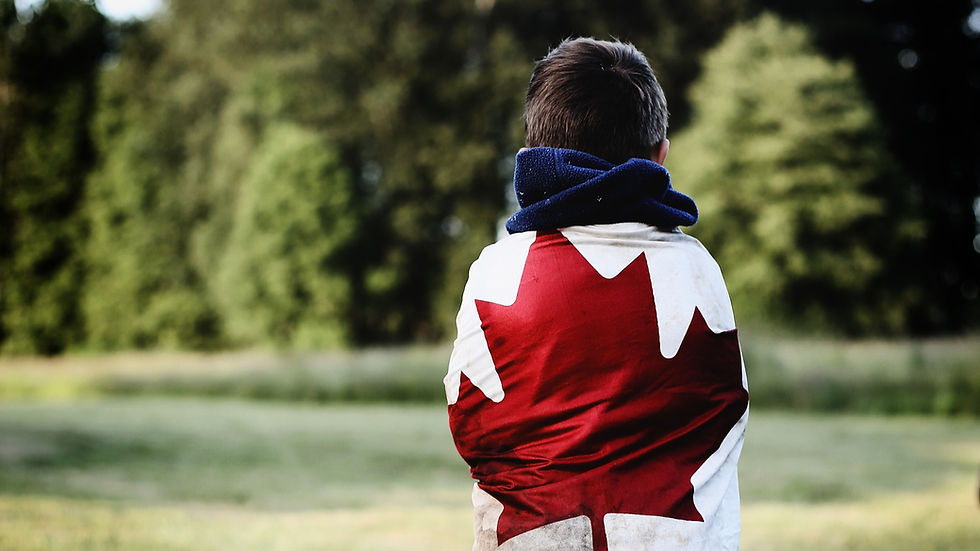Fear of the Far-Right: How Trump Sank Canada’s Conservatives
- Lordslove Ngonge

- May 5, 2025
- 3 min read
Updated: Jun 6, 2025
At the start of 2025, Canada appeared on the brink of a political transformation. With Prime Minister Justin Trudeau's approval ratings in freefall and a deepening economic malaise gripping the nation, the Conservative Party, led by Pierre Poilievre, surged ahead in the polls. Commanding a 26-point lead over the ruling Liberals, the Conservatives seemed poised to enter power. But that lead would evaporate—and with it, the assumption that right-wing populism was destined to dominate Canada’s political future.
The reversal was not simply the result of domestic missteps or economic shifts. It was driven by something larger, more ominous: Donald Trump. As Trump secured re-election in the United States with an emboldened nationalist agenda, voters around the world began reassessing the risks of far-right governance. In Canada, that reassessment became a political reckoning.

Trump’s Shadow and the Global Rightward Lurch
Trump’s political resurgence had international ripple effects. His aggressive posture toward allies, renewed tariffs, and open disdain for multilateralism painted a vision of a global order reshaped by brute economic force and nationalist bravado. For Canada, the implications were personal. Trump’s threats to impose a 25% tariff on Canadian cars and even flirtations with the idea of annexing Canada as the "51st state" jolted Canadian voters. What once seemed like fringe rhetoric suddenly felt dangerously plausible.
A Nanos Research survey conducted in March revealed a stunning shift in voter priorities: 36% of Canadians identified Trump as the most important factor influencing their vote—more than those who cited the economy. In a country traditionally defined by its moderate political center, this was a dramatic realignment.
Poilievre’s Miscalculation: Playing with Populist Fire
Pierre Poilievre’s brand of populist conservatism—once a political asset—began to look increasingly toxic as Trump's second term unfolded. His critiques of immigration, pledges to abolish the carbon tax, and attacks on Liberal economic management initially resonated with voters weary of inflation, stagnant wages, and a worsening housing crisis. But as global attention shifted to Trump’s inflammatory rhetoric and isolationist policies, Poilievre’s resemblance to the former president became a liability.
The Liberal Party, revitalized under new leader Mark Carney, seized the moment. Carney’s technocratic credibility and centrist stance offered a stark contrast to Poilievre’s populism. More importantly, the Liberals reframed the election not as a referendum on domestic economics, but as a vote on Canadian sovereignty and democratic stability. In doing so, they successfully linked Poilievre’s agenda to the broader global far-right movement—a movement many Canadians found increasingly alarming.
A Global Pushback Against Right-Wing Nationalism
Canada’s election was not an isolated case. Across the world, voters and civil societies are pushing back against far-right movements that once seemed ascendant. In Australia, Anthony Albanese’s decisive victory reinforced a commitment to centrist governance. These developments mark a global inflection point—a growing recognition that the costs of far-right populism are no longer hypothetical.
The outcome of Canada’s 2025 federal election is more than a political comeback story for the Liberals—it is a referendum on the global far-right movement that Trump has come to embody. Canadian voters looked south and recoiled, seeing in Trumpism not strength, but volatility; not leadership, but threat. In rejecting a party that flirted with those same themes, Canadians made a conscious choice to preserve their democratic values and national integrity.
The message from Canada is clear: the world is watching the United States, and increasingly, it does not like what it sees. As the far-right continues to assert itself across borders, it may find that its greatest obstacle is not liberal elites, but everyday voters unwilling to let fear masquerade as governance.









Comments